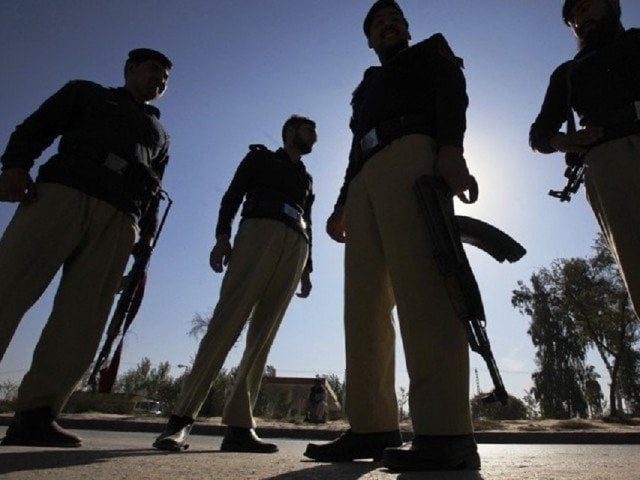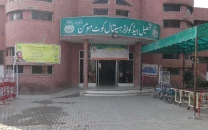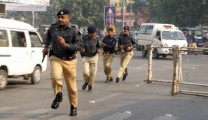Police officials face alleged discrimination
SI died of cancer few days after being dismissed from service by SP

The issue has been highlighted once again after a Punjab Police sub inspector (SI) died due to cancer a few days after being dismissed from service by SP Usman Butt in Gujranwala, for being absent from duty.
This division among police personnel is so common that labels had been coined that are used in everyday language to refer to officials of lower and higher ranks. These labels were popular among officers’ circles.
One commonly used label is ‘Noori and Nari’, where Noori is used to refer to the higher-ranking PSP officers and Nari for constables or rankers.
The label Noori derives from PSP officers’ internalisation of the notion that they are officers of elevated ranks up to the level that they consider themselves beyond common human beings, as well as devoid of any mistake, some junior officials told The Express Tribune.
Nari, the term used for rankers, the officials added, denotes that the lower cadre officials were of an inferior or vulnerable position.
A lower-ranking official said that they were the condemned ones and PSPs were the chosen ones in the departmental working at higher levels. “The PSP officers enjoy all the privileges. They have a set system of promotion. Every trainee ASP is supposed to retire as an additional IG at least, leaving very few exceptions.”
They enjoyed a full sense of impunity, he added. “Very few instances have happened when a PSP officer was held accountable, although some resumed charge after nominal or minor censure.”
They enjoyed full access to the funds yet no examples of accountability exist on charges of corruption, the official further said. “They also enjoy a far better working environment as well as access to other departmental privileges, including leave.”
However, on the other hand, rankers were hardly promoted throughout their service, he complained. “If anything went wrong, they were most likely to be held accountable. Bribe and corruption are stigmatised for lower-ranking officers when it comes to police.”
They had very poor working environment and also access to their due rights, including leave or ACR, was an uphill task for them, the police official highlighted. “This discrimination among the ranks led to a lot of frustration. The frustration was up to the level that there had been instances where lower cadre officials shot themselves dead in police offices after appearing before their senior officers.”
The officers reportedly abused and maltreated the lower-ranking officers up to the point where they decided to shoot themselves rather than bearing the insults.
A few months ago, a sub inspector had complained officially that his SP had abused him though he had performed his work according to the law. However, his lawful act had hurt ‘personal interests’ of then SP, it was alleged. Such examples are countless and a routine matter.
The recent death of SI Zainul Abideen of Gujranwala, due to cancer, is a prime example of the discriminatory treatment. The victim had submitted, before officers, that he was seriously ill due to cancer and could not appear for an inquiry in person as he was undergoing treatment at Shaukat Khanum Memorial Cancer Hospital. He was dismissed from service in an ex-parte decision.
However, his senior officer, Usman Tariq Butt, had been accused of torturing a person to death during a raid on a hotel in Lahore, as well as brutally torturing a woman in Rawalpindi. He still enjoyed key positions throughout his career.
Published in The Express Tribune, June 11th, 2020.



















COMMENTS
Comments are moderated and generally will be posted if they are on-topic and not abusive.
For more information, please see our Comments FAQ